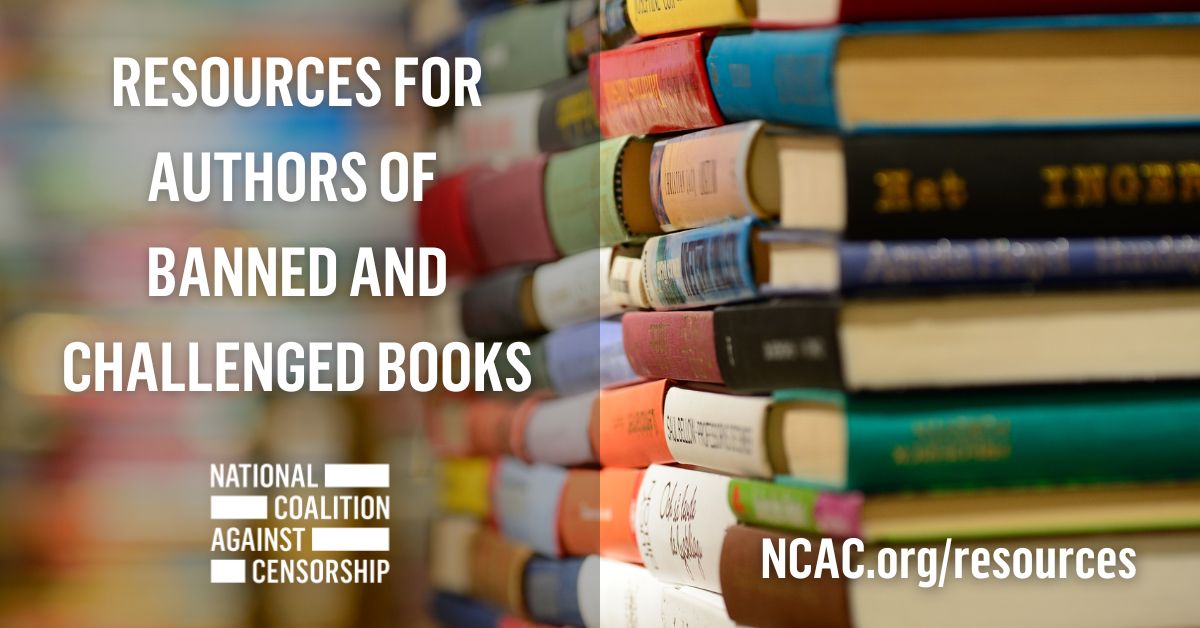Book challenges can happen at any time, and seemingly for almost any reason. Below are some resources for dealing with such attacks on your creative output as a writer. Note: See also NCAC’s Handbook for Educators and Guidelines for School Officials on book challenges.
HOW DO I KNOW IF MY BOOK IS BEING CHALLENGED?
Setting up Google Alerts with your name and publication titles can keep you informed of the ways your work is being discussed online. In addition, authors tend to learn of controversy through social media (whether from posts, direct messages, or trending topics), increased website traffic, or outreach from reporters, students, teachers, librarians, or parents through email or website contact forms.
WHY IS MY BOOK BEING CHALLENGED?
In K-12 schools, challenged books tend to contain offensive language, including profanity, or have characters or themes that reference sex, violence, death, suicide, LGBTQIA+ or BIPOC issues, or unflattering histories of the United States. When a parent or community member files a formal complaint about a book, it usually triggers a review process to determine whether the book should remain in the classroom or school library. Book review processes are unique to each district, and are often overseen by the board of education. For challenges in schools, NCAC Book Censorship Toolkit for additional information.
In most cases, the critics have not read the work in question, or have only read select passages out of context. Because school review committees are required to read the books, they reject most challenges. However, school boards may decide not to follow the recommendations of the committees. Sometimes books are removed without a committee review.


